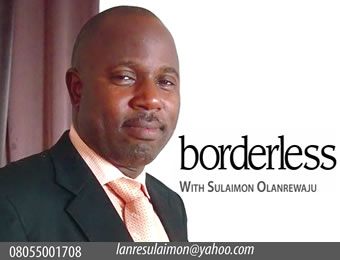The Senate, in its reaction to the protest, said the president had not violated any law of the land as he handed over to his deputy before embarking on the medical vacation. The Senate also described the demands by the protesters as unreasonable, saying that they were only creating unnecessary tension in the country and seeking to divert the attention of the Presidency from the economic and security issues which are being tackled with vigour.
While the police tolerated the sit-out protesters on the first day, the law enforcement agency attacked them the second day by firing teargas and water cannons at them, consequently injuring one of the protesters and a journalist. The FCT Police Public Relations Officer, Anjuguri Manza, while trying to justify the unprovoked attack, described the protesters as miscreants. Lauretta Onechie, Special Assistant to the President on Social Media, also described the group as lacking respect, saying the protesters were disrespectful for asking questions about the health status of President Buhari, who she described as a private citizen.
What all of these boil down to is that those in power are averse to their authority being questioned. But without those in authority being questioned and put on their toes, no great thing could be accomplished. Every nation that turned out great has had its citizens take up the leaders on issues about their conduct and the country. So, Charlie Boy and his group are right to ask questions about the President’s state of health and demand of him to resign if he feels he cannot continue due to poor health. For Nigeria to become the country all Nigerians dream about, more Nigerians must ask questions from those in government and insist on getting answers.
I am of the strong persuasion that development will never be at the instance of politicians but at the insistence of the people. The average politician is not only egotistic but extremely hedonistic. So, the concerns of the people do not readily appear on his radar. He wants to satisfy his greed and vanity before sparing any thought for the populace. For a public office holder to pander to the wishes of the people and give priority to their concerns, he has to be put on his toes by them.
However, that is one of the challenges we have as a people. The average Nigerian is not only docile and complacent but alarmingly compliant. He has this warped belief that the country will develop in spite of his inaction and not necessarily because of his action. So, he does not see the need to fight for his right. He considers insisting on the proper thing being done as a waste of time. This attitudinal disposition has subjugated Nigeria to its contemporaries; it has been responsible for the steady retrogression of one of the most endowed countries in the world to the club of the world’s poorest people. The average Nigerian is the undoing of Nigeria, the cause of the multifarious problems bedevilling the nation.
The average Nigerian cannot exert himself to acquire the necessary information required to checkmate the excesses of a leader; this makes him vulnerable to exploitation and denigration. He does not know what his rights are; he does not understand what the constitutional provisions are concerning the responsibility of those in government to him. He does not realise that he is the boss of those he elected to rule him. All he wants is just to hole up in his little world and get enough to get by.
Conversely, despite this character constriction, the average Nigerian wants a better Nigeria. He wants a developed country; one with pothole-free roads. He longs for stable electricity supply, he yearns for pipe-borne water, he hopes the nation’s hospitals will be effective and the school system will function perfectly. The average Nigerian wants omelette but is restraining himself from breaking eggs. He wants a change in his country and his circumstances but loathes changes in himself.
For Nigeria to get better, the average Nigerian must be interested in the affairs of his country and move from docility to active participation. He has to eschew surrendering his destiny and that of his children to others. He must not wait to be goaded to act against what is not in the interest of the nation. He must be actively involved in the nation building process. He must develop a critical mind and learn to interrogate the process. He must be willing to stand up against every form of injustice against anybody and at any time. He must resist the law enforcement agent who wants to take advantage of him. He must decline any Greek gift from any political office holder no matter the gnaw of his hunger or the sting of his lack.
The average Nigerian must flee every corrupt practice; he must neither engage in corruption nor support it. He must come to the realisation that every Naira that is inappropriately taken from the state coffers deprives a child of the much needed education, inches the sick closer to his grave for lack of drugs, worsens the potholes on the highways and makes uninterrupted power supply a pipe dream.
The Nigerian change must precede Nigeria’s change.
WATCH TOP VIDEOS FROM NIGERIAN TRIBUNE TV
- Let’s Talk About SELF-AWARENESS
- Is Your Confidence Mistaken for Pride? Let’s talk about it
- Is Etiquette About Perfection…Or Just Not Being Rude?
- Top Psychologist Reveal 3 Signs You’re Struggling With Imposter Syndrome
- Do You Pick Up Work-Related Calls at Midnight or Never? Let’s Talk About Boundaries







